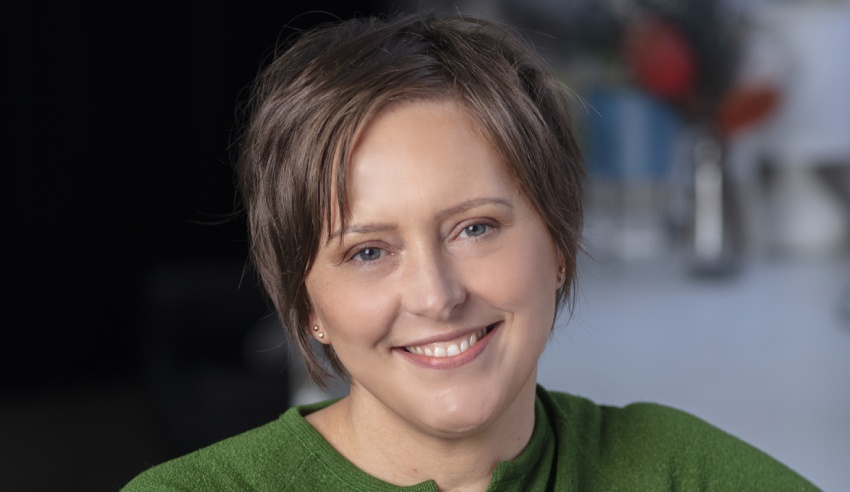Brooke Dellavedova was a class actions lawyer for over two decades. After taking time off to reflect on what is important to her, she is now studying a master’s degree, working as an interim general counsel and is “excited about what the world could look like in the coming years”.

Like lots of legal professionals, Brooke Dellavedova (pictured) “kind of fell” into her first practice role.
Her work as a class actions lawyer was hugely enjoyable, she told Lawyers Weekly, and she remains proud of the work she undertook.
However, after more than two decades in practice, she felt that it was “now or never” if she were to do and achieve something different in her career. As such, in early 2020, she walked away.
“I was not sure when I retired from class actions what that would look like,” she mused.
“After taking a break and reflecting on what was important to me, I found I was still interested in the law, but I wanted to apply it to my passion for protecting the environment and fighting climate change,” she recalled.
“While I’ve always really enjoyed nature and been concerned about the environment, I needed that break to see that this was a priority for me and to work out next steps. Having kids who are very environmentally engaged also pointed me in the right direction.”
Ms Dellavedova is currently undertaking a master’s in environmental law at the University of Melbourne and – while incumbent general counsel Katrina Bullock is on sabbatical – is serving as interim GC for Greenpeace Australia Pacific.
This new pathway is exciting for her, she said, especially when she considers “how the world could look in the coming years if and when countries start to significantly reduce their greenhouse gas emissions, and how I can contribute to that”.
“I’m excited about becoming connected with more and more people who are passionate about doing something about climate change – including other environmental law students and practitioners, and the good people at Greenpeace.
“I’m also really excited about studying – I’m thinking of applying to do a PhD next year and that excites me a lot! When you work in litigation, you can become very outcome-focussed. Study involves a degree of curious unpacking which seems like a very enjoyable (and hopefully useful) luxury to me,” she noted.
Ms Dellavedova is, of course, not the only legal professional in Australia concerned about the environment – as reported by Lawyers Weekly, it is a foremost consideration for lawyers at this weekend’s federal election.
That lawyers are so conscious of the environment and climate change, especially relative to other professional services strands, does not surprise Ms Dellavedova “at all”.
“Lawyers often become lawyers because they are interested in social justice issues. They are also interested in evidence, and the evidence on the impact of climate change, what is required to address it and Australia’s poor performance is overwhelming,” she submitted.
“Lawyers also understand the institutions and processes of government, and so understand the importance of good environmental policy and lawmaking.”
As a senior lawyer with decades of experience, Ms Dellavedova feels as though she is well placed to make a meaningful contribution on these fronts.
“Senior lawyers can bring to bear their standing, their networks, and their knowledge about how to get things done. I hope what I will bring to the table is rigour – litigation makes you very disciplined at identifying what you are trying to achieve and what is the best way to do it,” she said.
“Many avenues for climate advocacy intersect with the law, including for example local climate litigation such as the recent Sharma case conducted by David Barnden at Equity Generation Lawyers, and challenges to mining approvals by the Environment Defenders Office, and regional and international initiatives such as Vanuatu’s push to have human rights relating to climate change determined by the International Court of Justice, and the Urgenda litigation challenging the Dutch government’s ambition on climate change policy.
“There is also significant overlap between environmental issues and corporate governance and in particular climate risk management and disclosure (noting here the famous opinion on directors’ duties by Noel Hutley SC, and the work of Sarah Barker).”
When asked how best other senior lawyers can pursue and better advocate for the issues they are passionate about (be it on a personal or professional level), Ms Dellavedova said that an important step in the journey, for her, was trying to learn more.
“This might be by undertaking further formal study, attending seminars or reading. I recently read Jason Hickel’s book ‘Less is More, How Degrowth Can Save the World’, and found it extremely compelling,” she said.
Another important step, she added, is making connections with other people who share your interest.
Further learning, she noted, can be a good way to do this.
“Other things that senior lawyers can do is contribute their expertise and networks, for example by providing pro bono services to environmental organisations, acting on a pro bono basis in climate matters, or by becoming active in relevant professional associations and contributing to law reform and other research and writing projects,” she said.

Jerome Doraisamy is the managing editor of professional services (including Lawyers Weekly, HR Leader, Accountants Daily, and Accounting Times). He is also the author of The Wellness Doctrines book series, an admitted solicitor in New South Wales, and a board director of the Minds Count Foundation.
You can email Jerome at: